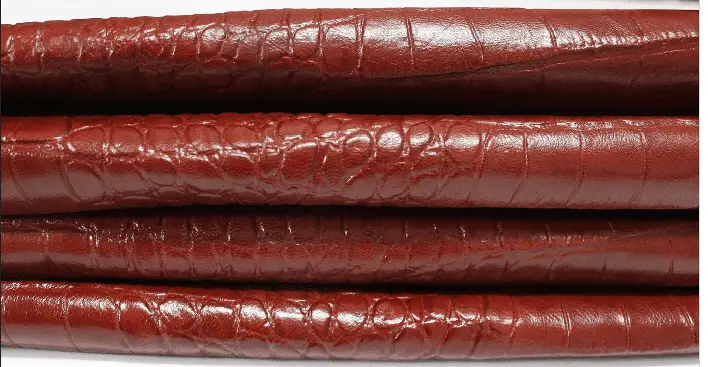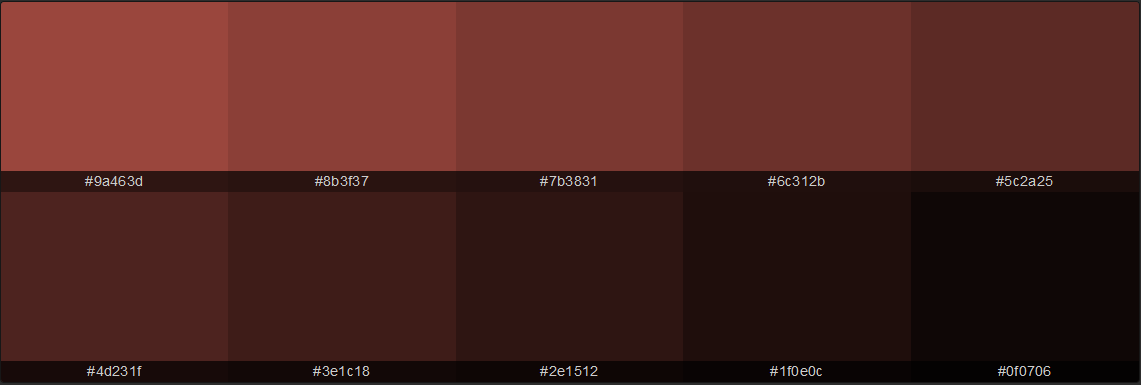The concept of craftsmanship, such as leatherworking artistry, has been famous since humankind was there. Leather making is a cute, old craft exhibiting civilizations and terminologies. Nowadays, it is considered an admirable craft that is extensively rampant in homes and used in everyday furniture. However, a precision and detail-oriented approach is required when purchasing leather products, and it can be confusing for many consumers having little or no knowledge. Customers need to know what they are paying for, and the quality needs to be comprehensively checked and monitored.
What is Cognac leather?
Cognac leather usually represents the color of the leather rather than a brand name. Cognac leather derives its name from brandy, cognac, amber, or golden-colored and gradually darkens with age.
Here are some advantages of Cognac leather:
- Durability: Cognac leather is known for its durability, making it a popular choice for furniture, bags, and shoes that must withstand regular wear and tear.
- Timeless style: Cognac leather’s warm, rich color is a classic and timeless choice that complements various interior design styles and fashion trends.
- Versatility: Cognac leather can be dressed up or down, making it a versatile choice for various settings and occasions.
- Natural beauty: Cognac leather’s unique grain and texture can add natural beauty and character to furniture and accessories, enhancing their aesthetic appeal.
- Easy maintenance: Cognac leather is relatively easy to clean and maintain. It can be wiped down with a damp cloth and requires only occasional conditioning to keep it looking its best.
- Comfort: Leather can naturally conform to the body and provide comfort, making it a popular choice for shoes and furniture upholstery.
What Color is Cognac Leather?
The Cognac Leather color is an appealing brown with a touch of dull red or warm caramel color, reddish-brown. By theory definition, Cognac Leather is a medium brown color with subtle red undertones.
Cognac leather is typically a medium brown color with subtle reddish or red undertones, giving it a warm and rich appearance. It is often described as brown with a touch of red or warm caramel color and is a popular choice for leather furniture, bags, and shoes.

In verbatim, the word cognac is the name of a brandy label that comes after the community of cognac, France. This typical brandy is produced on the outskirts of the wine-growing region. Cognac leather is widely used in household furniture and accessories, and it is a wearable and elegant collection of colors and fabrics.
Cognac is a French brandy primarily produced from a specific assortment of grapes. After the brandy preparation, it is supposed to undergo distillation and then be aged for at least two years. The hard beverage is light brown with a shade of red in it, which darkens with age.
Cognac’s warm brown color is due to the wooden barrels in which the brandy’s production and aging process occur. Therefore, the older the cognac, the darker the drink’s color will be. There are currently more than 200 cognac producers worldwide.
Leather, which is specifically warm brown-colored, is called cognac leather. The leather gets its color during the dyeing process. Irregularities and inconsistencies are isolated from the leather, then placed and separated into multiple color batches. Although there is a specific color, the color of cognac leather goods and accessories depends on the quality of the dye used. If darker pigments are used, then the end product of cognac leather will resemble the aged cognac brandy, much darker in color, also called dark mahogany. Leather designers prefer to use a color for food senses, drinks, or flowers, which is why a darker shade of leather is called chocolate, which refers to a dark shade of brown.
What color is cognac?
Cognac represents a reddish-brown color, rich amber or brown, with hints of orange and red. Cognac is a natural, earthy, warm reddish-brown color named after the French variety of brandy (alcoholic drink).
Cognac color characteristics:
- Warm and prosperous: The Cognac color is warm and rich, with a deep amber or brown tone and hints of red and orange.
- Natural: The Cognac color is inspired by the natural color of Cognac brandy and is often used to describe leather or other materials that have a warm, natural look.
- Timeless: The classic and timeless look of the Cognac color makes it a popular choice for interior design and fashion, as it can work well with various styles and trends.
- Versatile: The warm and rich tones of the Cognac color can be used in various applications, from furniture upholstery to clothing and accessories.
- Sophisticated: The deep, rich tones of the Cognac color can add a touch of sophistication and elegance to any space or outfit.
- Unique: While the Cognac color is often described as a warm brown with reddish undertones, the exact shade can vary depending on the lighting, the material it is applied to, and other factors, giving it a unique and distinctive appearance.
Cognac is a type of brandy named after the town of Cognac in France. The cognac color is a deep, rich amber or brown, with hints of orange and red.
The color of cognac can vary depending on factors such as the aging process and the type of oak barrels used for aging, but it generally falls within this color range. When used to describe leather or other materials, cognac typically refers to a warm brown shade with reddish undertones, similar to the color of cognac brandy.

Cognac colors are:
- HEX: #9a463d RGB: (154, 70, 61)
- HEX: #7b3831 RGB: (123, 56, 49)
- HEX: #8b3f37 RGB: (139, 63, 55)
- HEX: #5c2a25 RGB: (92, 42, 37)
- HEX: #6c312b RGB: (108, 49, 43)
- HEX: #4d231f RGB: (77, 35, 31)
- HEX: #3e1c18 RGB: (62, 28, 24)
- HEX: #2e1512 RGB: (46, 21, 18)
- HEX: #0f0706 RGB: (15, 7, 6).
- HEX: #1f0e0c RGB: (31, 14, 12)
Cognac leather is widely used in routine life. We often come across handbags, laptop bags, briefcases, leather shoes, boots, sofas, recliners, wallets, or belts, commonly categorized under cognac leather. It is considered exquisite, and the vibrancy appeals to individuals with style and sophistication. Its color fluctuates prominently in hues and can complement subtle, neutral tones such as ivory and earthy shades. This color can sometimes reveal light hues or exhibit dark brown and red shades mostly; when modernizing or decorating a neutral or a single-toned space, a cognac color is added when an item or a furniture piece is placed to add to the room’s brightness.
The resourcefulness of cognac leather is unquestionable. It is undoubtedly versatile and can easily be tagged into all aspects of household items. Regarding apparel, cognac leather is standard, but furniture such as ottomans, headboards, chairs, and even stools can be made from cognac leather.
Leather items are well-received and approved by people of taste; however, cognac leather adds elegance and refinement to the product, allowing it to stand out. Nowadays, it is increasingly admired around the world. However, it can also be described as generic and impersonal. It is ideal for investment because original, untreated leather has been around for ages and is suitable and convenient to work with other colors as far as furnishings are concerned.
The variety in leather making has allowed a rapid prevalence and growing popularity of cognac leather and its incorporation into everyday items. The best quality leather, full-grain leather, is the most standard and has many functions. It comes with certain scars and discoloration on its surface. Still, it is considered the most luxurious in the leather market, making it long-lasting and highly reliable. Full-grain leather is the most desirable because of its prolonged existence and resourcefulness. Many leather types are other than full-grain, such as bi-cast, bonded, and top-grain. The quality and resilience of the leather product also depend on finishing the end product. The types include aniline, semi-aniline, degraded, die-cut, brush colored, embossed, handwork, embroidered, oily, printed pigmented, and Suede.
Full-grain cognac leather is formulated and assembled from the top layer of cowhide and is of natural origin, as it has not been processed. This is why leather lovers are primarily inclined towards full-grain leather, as its fibers are entirely undamaged and offer fiber strength.
This allows the leather to breathe naturally, thus giving it the meaning reliability and durability. Since cowhide is very thick, it renders multiple varieties and kinds of leather. The most familiar and extensively used one is suede. It is made from the hide’s corium part, rubbed, and processed for extreme elasticity. It is opposite to full-grain as it is processed; therefore, the fibers are slackened, resulting in a velvet-like appearance and feel. It is the softest but more vulnerable to dirt and blemishes. The Suede is high-maintenance and should be cleaned frequently to maintain its originality.
Tanned-color or leather pieces are the ultimate favorite of furniture and apparel stylists. Throughout the century, designers have welcomed cognac-shaded leather’s inviting, warm tones, making it indispensably in home furniturdesign. So, cognac-colored leather products to revive the room’s whole look. The red in its shading will add vibrancy to the room. In addition, cognac leather has a unique richness and warmth that pairs with cozy officers and stylish rooms.
However, you need a perfect match of colors to overdo the entire picture or clash with the cognac leather’s reds. It is well known to be an actual fall color, and it can work perfectly with fresh and bright colors such as vibrant emerald green or yellow-shaded tones and even ice blue.


